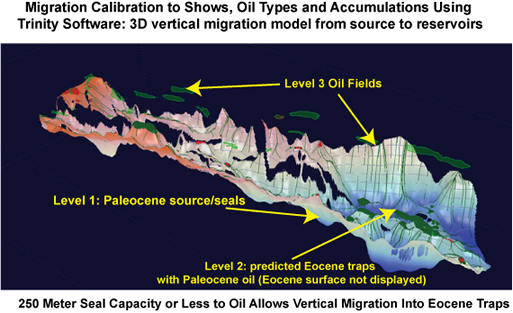Exploration Philosophy
"The map is wrong. It is always wrong. The question is, how wrong is it"? --Jim Mika, Gupco Exploration, Cairo, Egypt
DSP staff recognize that petroleum exploraton is a high risk business. We recognize that integration of cutting edge technology with highly skilled teams is the key to risk reduction.
Recent technical advances we concentrate on which contribute to risk reduction include:
- Seismic imaging and reservoir quantification
- Quantitative petrophysics and flow units for resevoir modeling and exploration
- High resolution sequence stratigraphy from cores and ichonology
- Seal detection and quantification
- Show detection from fluid inclusions, head space gas and advanced mud-logging tools
- Petroleum sysems modeling software which honors vertical and lateral seals in migration analysis
The key to our approach is:
'Early and quantitative assessment of cores, facies, flow units and shows'---the rocks never lie. We can make sense of the vertical and lateral variations in facies, seals and hydrocarbons.
Team training philosophy
Hands on
Multi-discipline teams learning the same language and integration tools
Your choice of:
1-4 day formal training with materials
Applied workshops using your data with course content tailored to your information and your people
Software tools we use:
Excel-based capillary pressure, pseudo-capillary pressure, pore-throat and flow unit analysis
Excel-based templates for capturing oil and gas show data for export to logs and seismic on workstations
Trinity migration, seal and charge modeling
ARCGIS based integration, paleogeographic map conversion to seal grids and calibration of shows information to test/validate migration models
Landmark, Petrel, Petra and other workstation software.
